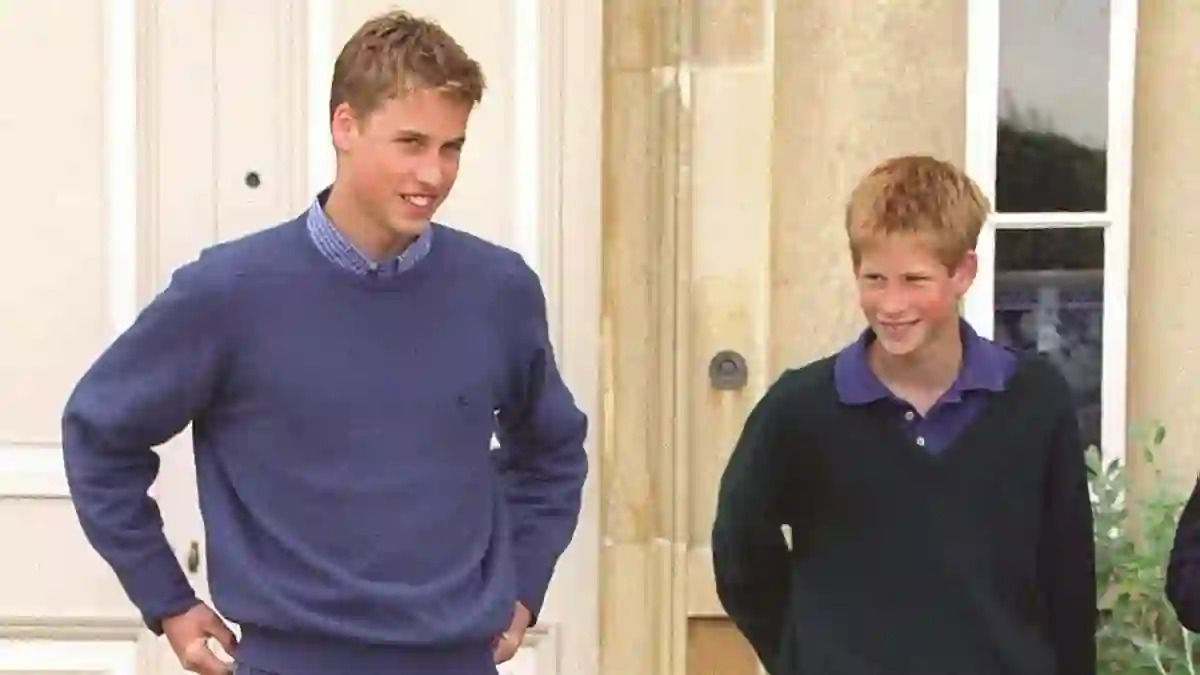Not all royal stories unfold with trumpets and fanfare—some happen quietly, in meeting rooms and behind palace doors.
One of the most influential figures in the lives of Prince William and Prince Harry wasn’t a family member or a senior palace aide—but a seasoned diplomat who, for a decade, quietly guided the young princes as they stepped into their roles on the global stage.
The Queen’s Strategic Pick
When Queen Elizabeth II looked ahead at the future of the monarchy, she knew her grandsons would need more than titles—they’d need guidance.
As head of state across 14 countries and the broader Commonwealth, the monarchy’s image abroad was no small matter.
So, the Queen turned to someone she trusted deeply: Sir David Manning, a former British ambassador to the United States.
Rather than selecting a traditional palace insider, she wanted someone who could help William and Harry navigate their public lives with a global perspective—and Sir David, with his impressive diplomatic resume, was just the person.
An Unusual Agreement with the Queen
According to royal expert Valentine Low in his book Courtiers, Sir David had two unusual requests when taking the job: he would work part-time, and he would do it for free.
He wanted no salary and no official palace title—just the freedom to advise without getting caught up in court politics.
The Queen agreed. She had met Sir David several times and was confident in his ability to connect with the young royals.
She wasn’t wrong—Sir David went on to become one of their most trusted mentors.
More Than an Advisor—A Confidant
For William and Harry, Sir David became far more than a diplomatic guide.
According to their former private secretary, Jamie Lowther-Pinkerton, the princes felt they could truly be themselves around him.
“He was someone they could talk to, joke with, and trust completely,” Lowther-Pinkerton said.
“He had great judgement and was incredibly discreet. They knew he was in their corner.”
What made Sir David especially effective was that he didn’t force them into roles—they weren’t just “royal figures” to him.
He saw them as real people who needed space to discover their own purpose within the monarchy.
Finding Purpose Through the Royal Foundation
One of the biggest legacies from that mentoring relationship was the Royal Foundation, launched in 2009 as a way for the princes to pursue causes close to their hearts.
Designed to be a modern and agile charity, it allowed them to work with flexibility, free from heavy institutional constraints.
Under Sir David’s guidance, the Foundation tackled big issues like mental health, homelessness, and the environment.
Prince Harry, for instance, launched the Invictus Games through the Foundation, using £1 million in funding to kick off the now-famous event for injured veterans.
Later, Kate Middleton joined the foundation in 2011, and when Harry married Meghan in 2018, she joined as well—though both Meghan and Harry left the organisation after stepping down as working royals in 2020, forming their own charity, Archewell.
Saying Goodbye After a Decade of Service
Sir David stepped down from his advisory role in 2019 after a decade of service.
At the time, a spokesperson for the princes said they were “incredibly grateful” for his support and “wise counsel,” crediting him as a major reason their early official work—and international tours—had been so successful.
From William and Kate’s first big North American tour in 2011 to Harry and Meghan’s trip to Fiji and Tonga, Sir David was often there in the background, helping to shape every detail.
He was even believed to have offered Meghan briefings on the British constitution to help her understand her new role.
The Diplomat Behind the Curtain
Sir David wasn’t just a royal aide—he had a long and decorated career in international diplomacy.
He served as UK ambassador to the United States from 2003 to 2007, during a particularly intense era that included the lead-up to the Iraq War, when he was a key foreign policy advisor to then-Prime Minister Tony Blair.
His earlier postings included high-level roles in Warsaw, New Delhi, and Moscow, and from 1995 to 1998, he was the British ambassador to Israel.
In recognition of his service, he was knighted in 2008.
A Lasting Impact, Quietly Made
Though his name isn’t widely known to the public, Sir David Manning had a profound impact on the modern monarchy.
By guiding William and Harry through the early years of royal duty, helping them find causes they cared about, and ensuring they were prepared for life on the world stage, he shaped how a new generation of royals approached their roles.
He didn’t do it for fame or recognition—and that may be exactly why it worked so well.
